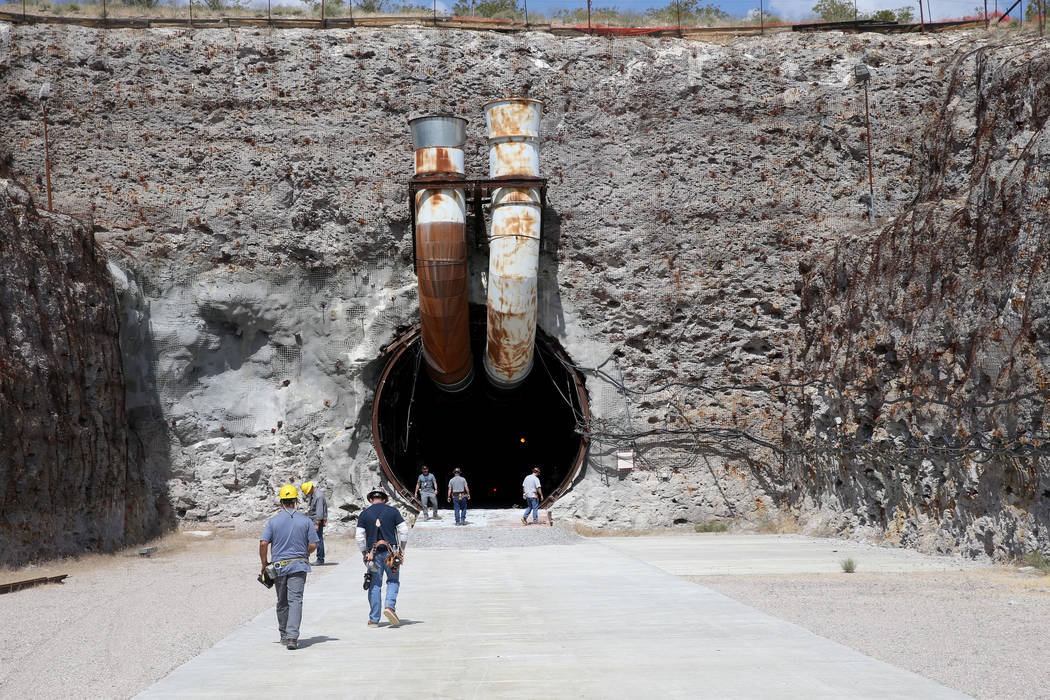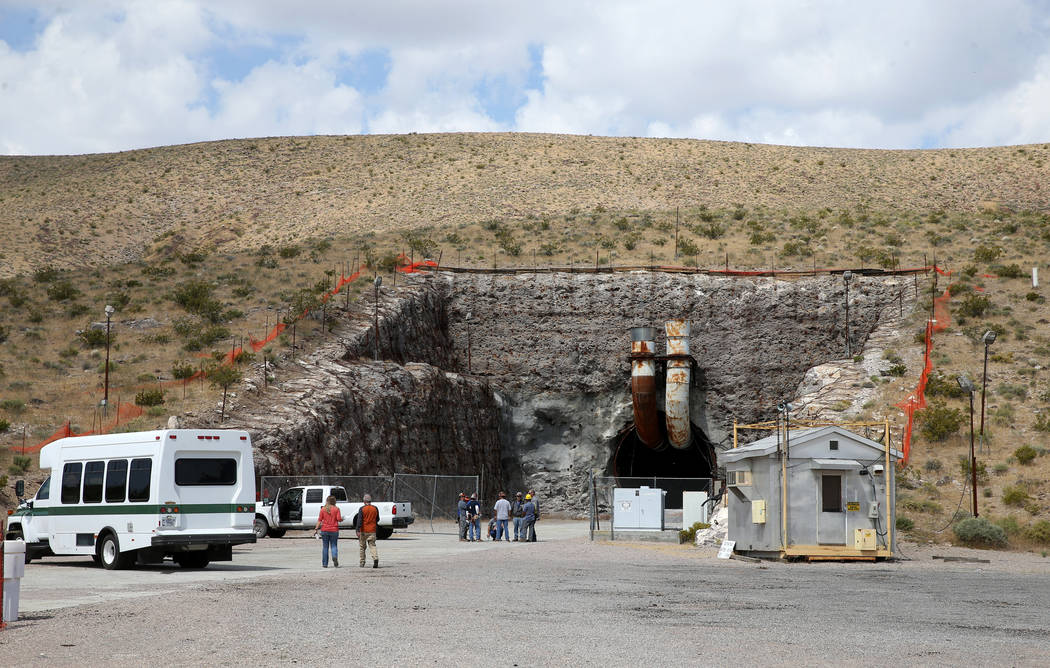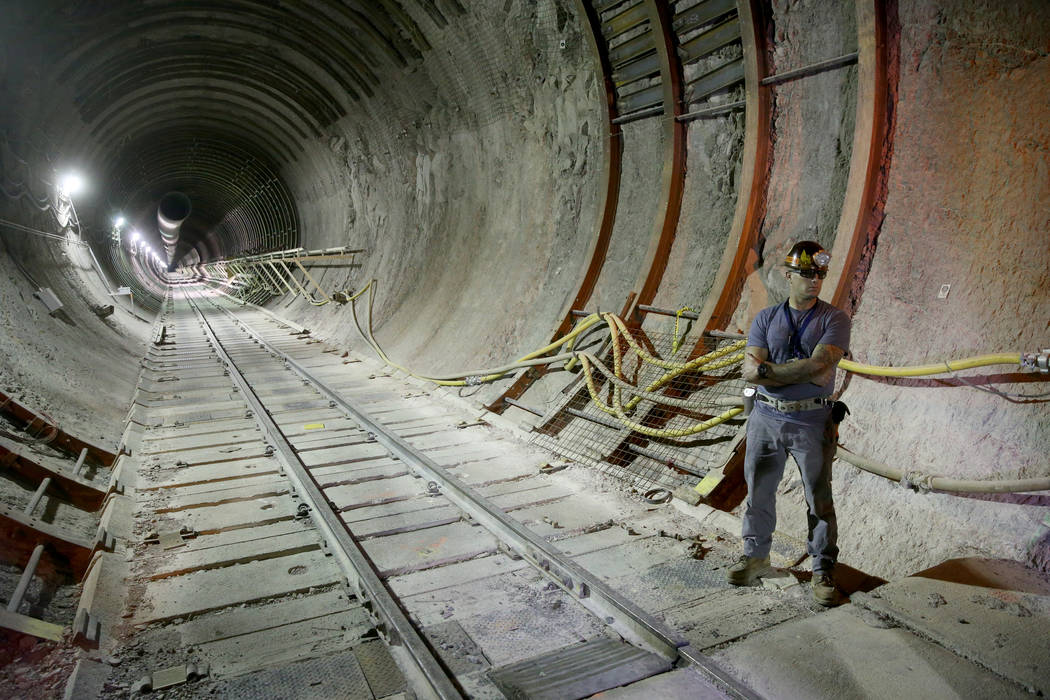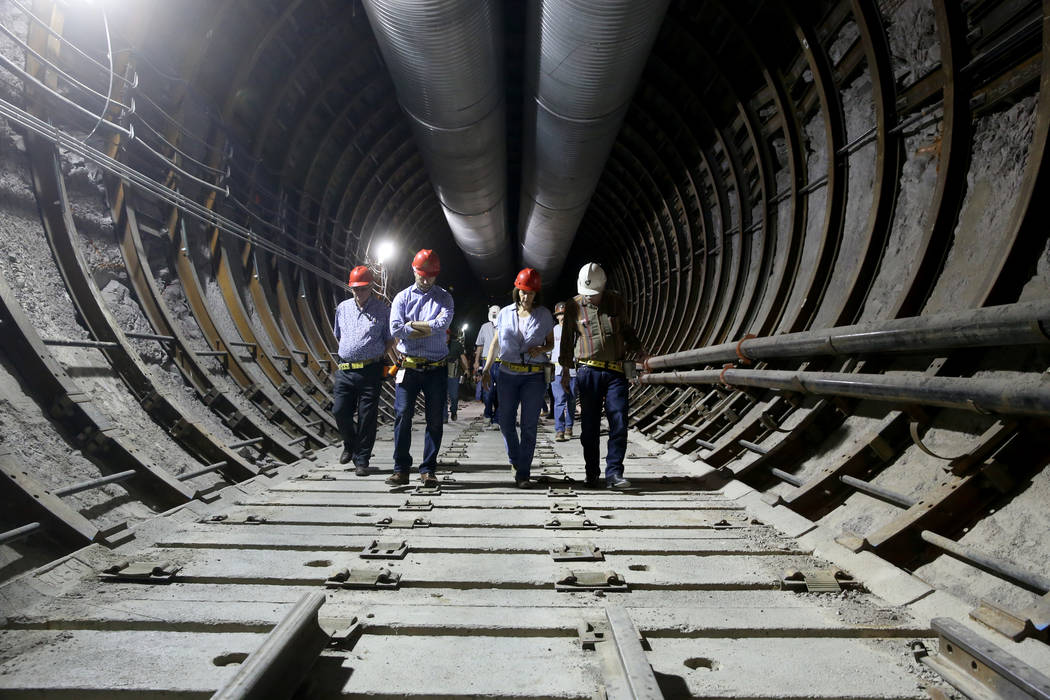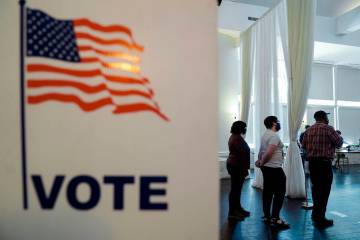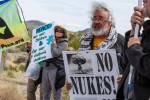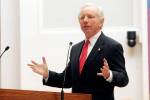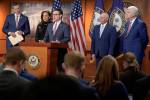No money for Yucca Mountain project in Senate budget
WASHINGTON — A $49 billion spending bill for the Department of Energy was unanimously approved by a Senate committee on Thursday without money to revive the licensing process for the Yucca Mountain nuclear waste repository.
The Senate followed the House in dismissing the Trump administration’s request for $130 million to restart licensing on the nuclear repository — a decision by lawmakers that likely dooms any chances the project can be revived in fiscal year 2020, which begins Oct. 1.
The Senate Appropriations Committee voted 31-0 to pass the spending bill, and Chairman Richard Shelby, R-Ala., thanked Sen. Lamar Alexander, R-Tenn., and Sen. Dianne Feinstein, D-Calif., on the energy subcommittee for bringing the bill to the full panel and “crafting it in a bipartisan manner.”
Alexander and Feinstein did include in the bill a pilot program for consolidated nuclear waste storage, and some funding to allow the Energy Department to store nuclear waste at private facilities licensed by the Nuclear Regulatory Commission.
But the bill contained no funding sought by the Trump administration to jump start the licensing process that must be completed in order to begin construction on Yucca Mountain, located 90 miles northwest of Las Vegas.
Licensing began during the George W. Bush administration, but was stopped by the Obama administration, which pulled funding and halted ongoing hearings to determine if the Nevada site was safe to store 77,000 metric tons of radioactive waste from power plants.
Earlier this year, the House Appropriations Committee voted narrowly to block money for licensing on Yucca Mountain. The loss showed the strength of a young Nevada congressional delegation and their support from House leaders.
Rep. Mark Amodei, R-Nev., the only Nevada lawmaker on the panel, voted against Yucca Mountain spending, while Democratic Reps. Dina Titus, Steven Horsford and Susie Lee lobbied colleagues on the panel to oppose the spending measure.
Likewise, Nevada’s two Democratic senators, both in their first term, have lobbied Feinstein, the ranking Democrat on the Senate Appropriations subcommittee on energy, and Senate Minority Leader Chuck Schumer, D-N.Y., against reviving the waste project in Nevada.
“The Senate committee advanced their spending bill without any Yucca funding. Even those who desperately want to revitalize the dangerous Yucca Mountain project are beginning to acknowledge the strength of our efforts to block it,” said Rep. Dina Titus, D-Nev., who has fought the project during her tenure in the U.S. House and state legislature.
“I’ve been in this fight long enough to know that it is far from over, but this is something worth celebrating,” Titus said.
A divisive issue, Alexander told a Yucca Mountain subcommittee hearing earlier this year that he would seek a full up-or-down vote in the full Senate to determine if there was enough support for continuing with licensing to support it in the spending bill.
Without support, Alexander said he would not include Yucca Mountain licensing money in the spending bill, and focus efforts on interim storage of nuclear waste at private facilities.
With the rush to complete the appropriations process for this year to keep the government running, no vote took place in the Senate.
Senate Majority Leader Mitch McConnell, R-Ky., is pushing the committee to bring spending bills to the floor as the clock ticks down to keep the government funded and avoid a shutdown.
Yucca Mountain was designated by Congress in 1987 as the nation’s sole site for nuclear waste storage from power plants and Navy vessels.
The failure to open Yucca Mountain, mainly due to political opposition, has left radioactive waste temporarily stored at 121 sites in 39 states with a cost to the government of $2 million per day.
Lawmakers where private power plants that produce nuclear waste are frustrated with the federal government’s failure to take control of the waste and safely store it, as was promised in the 1987 legislation that designated Yucca Mountain as the national repository.
But local opposition in Nevada has increased, with business leaders, environmentalists, tribal leaders, recent governors, the congressional delegation and the state legislature joining forces.
This week, the Las Vegas Metro Chamber of Commerce, was holding its annual lobbying trip in Washington, where in addition to transportation funding, business leaders were urging lawmakers to oppose Yucca Mountain development as a nuclear waste repository.
“We couldn’t be happier,” said Mary Beth Sewald, the chief executive officer of the Las Vegas chamber. “We have been against it since Day 1.”
“The potential dangers outweigh the potential benefits,” Sewald said.
The project, though, does have support in the state from Nye County, where the repository would be located, and other rural counties who see an economic boon from the project if nuclear waste storage is deemed safe by the Nuclear Regulatory Committee.
The nuclear energy industry and the Department of Energy point to studies that show the site would be safe for nuclear storage for years.
Contact Gary Martin at gmartin@reviewjournal.com or 202-662-7390. Follow @garymartindc on Twitter.



